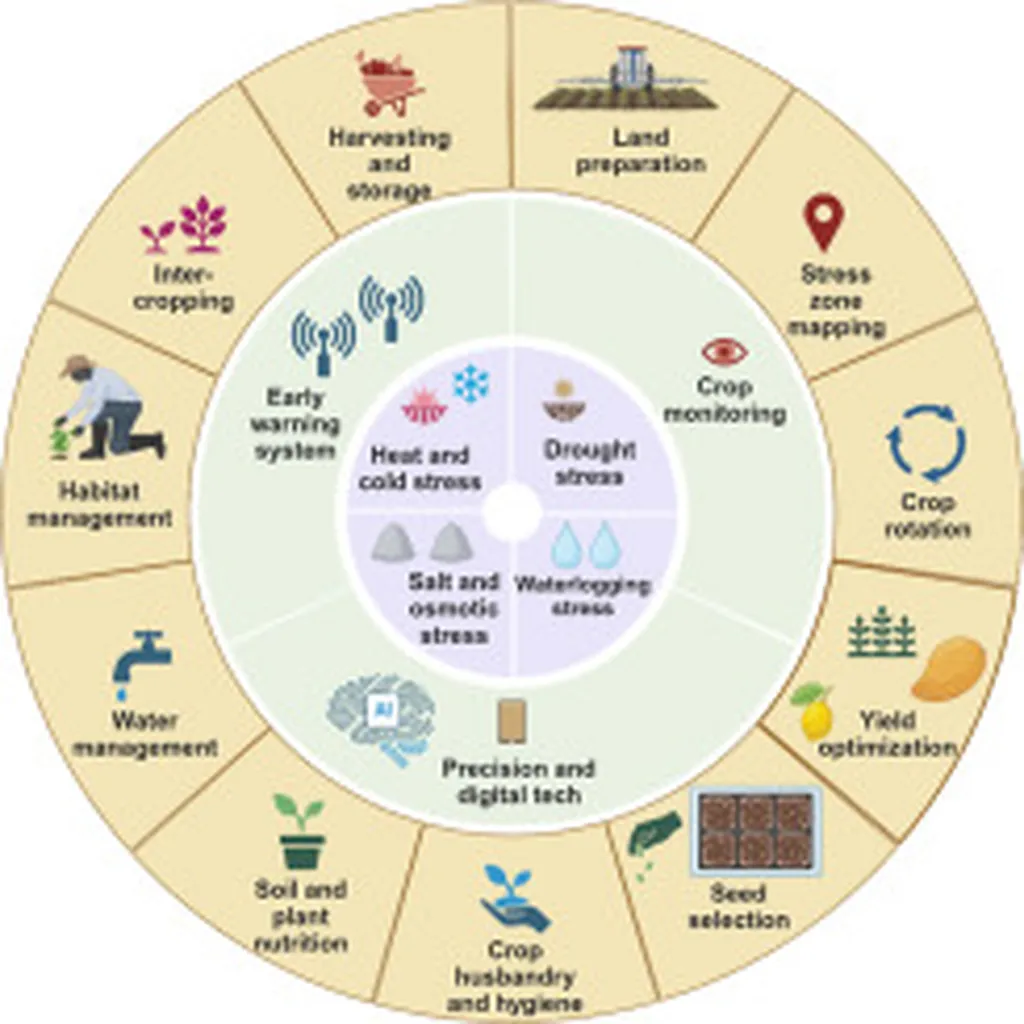In the face of a changing climate, fruit growers are turning to artificial intelligence (AI) to safeguard their crops against abiotic stresses like drought, salinity, and extreme temperatures. A recent review published in *Plant Stress* (translated as *Stress in Plants*) sheds light on how AI-driven early warning and predictive systems are revolutionizing horticultural practices, offering a beacon of hope for sustainable agriculture.
Muhammad Ahtasham Mushtaq, lead author of the study and a researcher at the MOA Key Laboratory of Tropical Crops Biology and Genetic Resources, Institute of Tropical Bioscience and Biotechnology, Chinese Academy of Tropical Agricultural Sciences, emphasizes the critical role of AI in modern agriculture. “Traditional methods of tackling abiotic stresses lack scalability and real-time feedback,” Mushtaq explains. “AI integrated approaches, such as stress prediction, irrigation optimization, and image-based phenotyping, are enhancing our ability to manage these challenges effectively.”
The review highlights the transformative potential of AI in precision farming. Machine learning models like Random Forest and Gradient Boosting are improving stress management by analyzing vast amounts of data and providing actionable insights. These technologies enable growers to optimize irrigation, detect stress early, and implement targeted interventions, ultimately boosting crop productivity and resilience.
However, the adoption of AI in horticultural crops is not without its challenges. Mushtaq points out the need for robust training programs, data accessibility, and addressing algorithmic biases. “Integrating multi-omics data and ensuring the cost-effectiveness of these systems are crucial for their widespread adoption,” he notes.
The implications for the agricultural sector are profound. As climate change intensifies, the ability to predict and mitigate abiotic stresses will be vital for food security. AI-driven systems offer a scalable and adaptable solution, paving the way for resilient, carbon-neutral fruit production.
This research not only underscores the importance of AI in modern agriculture but also sets the stage for future developments in precision horticulture. By addressing the current barriers, the agricultural community can harness the full potential of AI to create a more sustainable and productive future.
As Mushtaq aptly puts it, “The integration of AI technologies is essential for enabling climate-smart agriculture and ensuring food security in the face of a changing climate.” With ongoing advancements and collaborative efforts, the future of fruit production looks promising, thanks to the power of AI.

